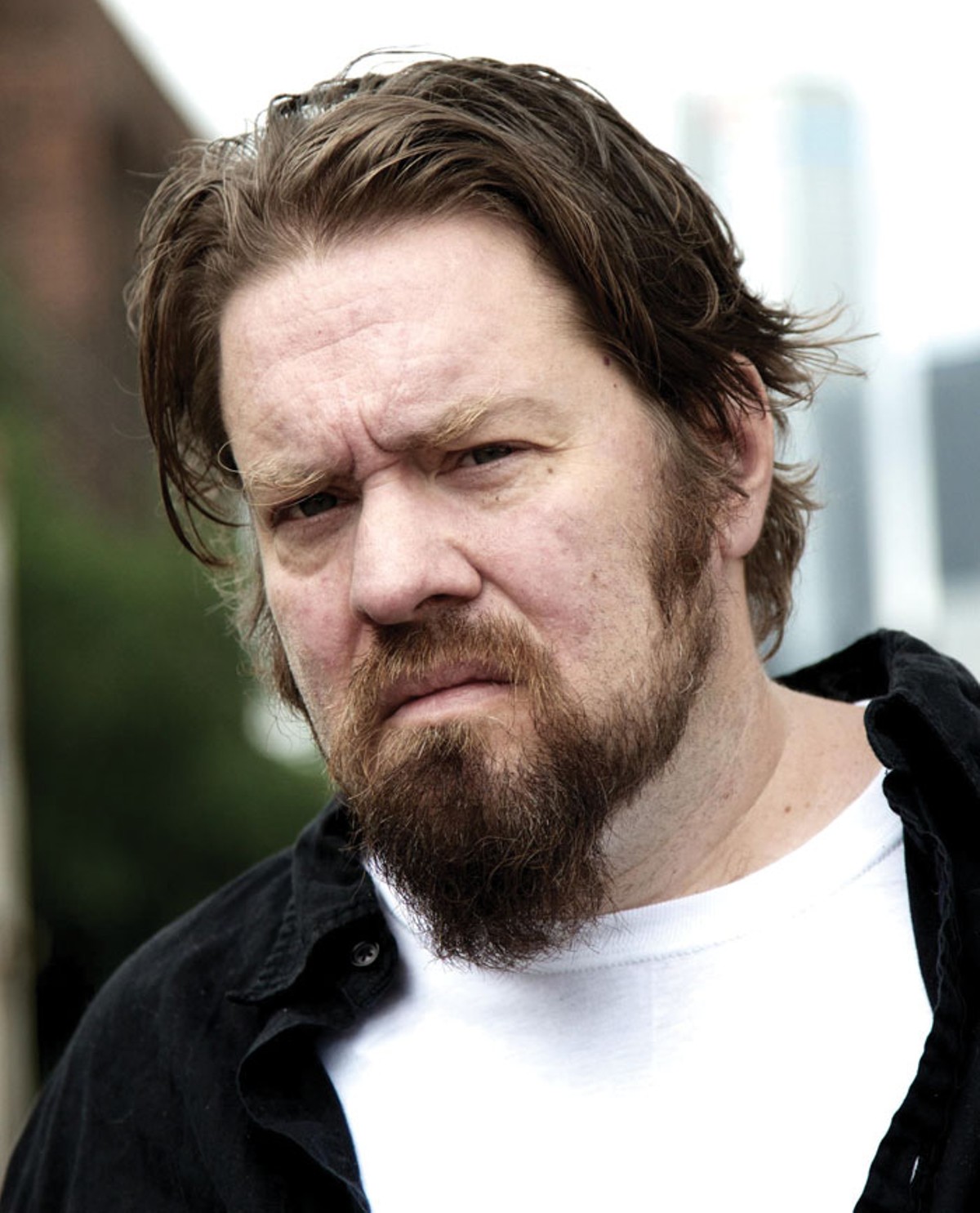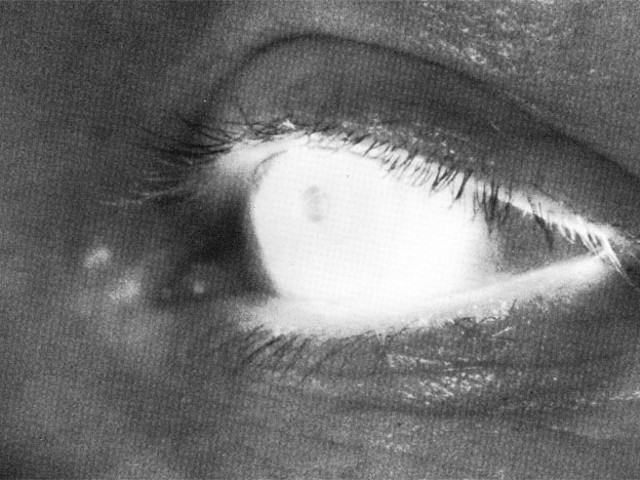Curious about the history of St. Patrick's Day in Corktown? You could do worse than talk to Jimmy Doom, aka James Graham. Most people know him as the hardworking actor, the wisecracking former lead singer of the Almighty Lumberjacks of Death, or the Sunday afternoon bartender at Corktown Tavern. But his ethnic roots reach back into the Irish west side, and he's been coming down to Corktown since he was a kid.
His ancestors bore such names as McHugh, Walker, and Martin, and his Uncle Mal was a cigar-chomping Irish priest. He was married by the Rev. Russell E. Kohler at Holy Trinity, the oldest Irish parish in the city. In fact, he's sitting with us right now at St. Cece's, the former Baile Corcaigh, only because Corktown Tavern is closed, its future up in the air on this winter afternoon.
Graham's ethnic background practically demanded that he attend the parade from a young age. "My mom's family grew up with the Brady family, which owned Diamond Jim Brady's," he says. "There were five kids in my mom's family and the five kids in the Brady family. And there was a Brady kid that was the same age as me. And so Diamond Jim's would have a float in the St. Patrick's Day parade, so we'd come down here. My brother was actually on the float one year. Another year, my mom was a judge in the Miss Irish-American Pageant."
Graham admits to being nonplussed by the parade as a young kid.
"I remember, even as a young kid, it's a parade but there's no giant inflatable Underdog," he says. "You would have thought they'd have a giant inflatable Lucky Charms guy or something, but, no, it was just trailers and marching bands."
"I kinda dug it," he says, "but the Tigers were in Lakeland, because it was too early in the season, so you're down here by the ballpark, and when I first came down here for St. Patrick's Day parade, it was like, 'This is kind of a shitty parade.' All the pubs from the west side would have floats that were just cars, vans, or pickup trucks pulling trailers with vinyl signs, and there'd be pretty drunk girls and very drunk guys throwing candy. Sweet Tarts would go spilling across the beer-strewn bricks of Michigan Avenue and we kids would pick them up and pop them in (our) mouths."
"I didn't realize it's a giant excuse to drink," he says. "We used to stop for mass at St. Mary's of Redford or Our Lady Queen of Hope before heading down to the parade. But back then, a bunch of Catholic churches used to offer a Saturday night mass, so you could come right down to the parade on Sunday. So if you think about it, the parade didn't start late because they wanted people to come after church, the parade started late because they wanted people to be able to drink legally."
Of course, this was back in the days before you could drink before noon on a Sunday, and many a paradegoer would bring a flask, turning the morning into what Graham calls "probably the biggest day in the history of Bailey's and coffee."
Back then, Graham says it was more about coming down with a group from a pub, a church, or with a family that included cops or firefighters, or "because their kid was in the Our Lady of Sorrows Marching Band." And it's not that Graham remembers it ever being a 100-percent Irish event. "There'd be guys with names like Slyczktowski wearing pins saying, 'Today we're all Irish,'" Graham recalls. "But even when I was in high school, there was a greater sense of Irish community. I remember seeing a friend of mine who grew up in Hamtramck. Somehow, he got up on a float, and we gave him hell. We were yelling at him along the parade route, hooting at him, 'Get your Polish ass off that trailer!' And he was kind of embarrassed. He actually knew he was encroaching on something. These days, I don't think anybody cares. You could roll the Oscar Mayer Wienermobile down the street and nobody would care. It was a big old drunken community thing, and now it's just a big old drunken thing."
He jokes that "at least the Kelly Green plastic hat business isn't crumbling." Which brings up sort of a sore spot with Graham: "Irish people are the last ethnicity on Earth you can make fun of," he says. "There's no watchdog group looking out for unfair portrayal of their ethnic heritage. In popular culture, we're either fighting, drinking, or gaily skipping through the woods with soap. I mean, look at Notre Dame's logo. If that were a Native American in a fighting pose, the stadium would be ringed with protesters."






